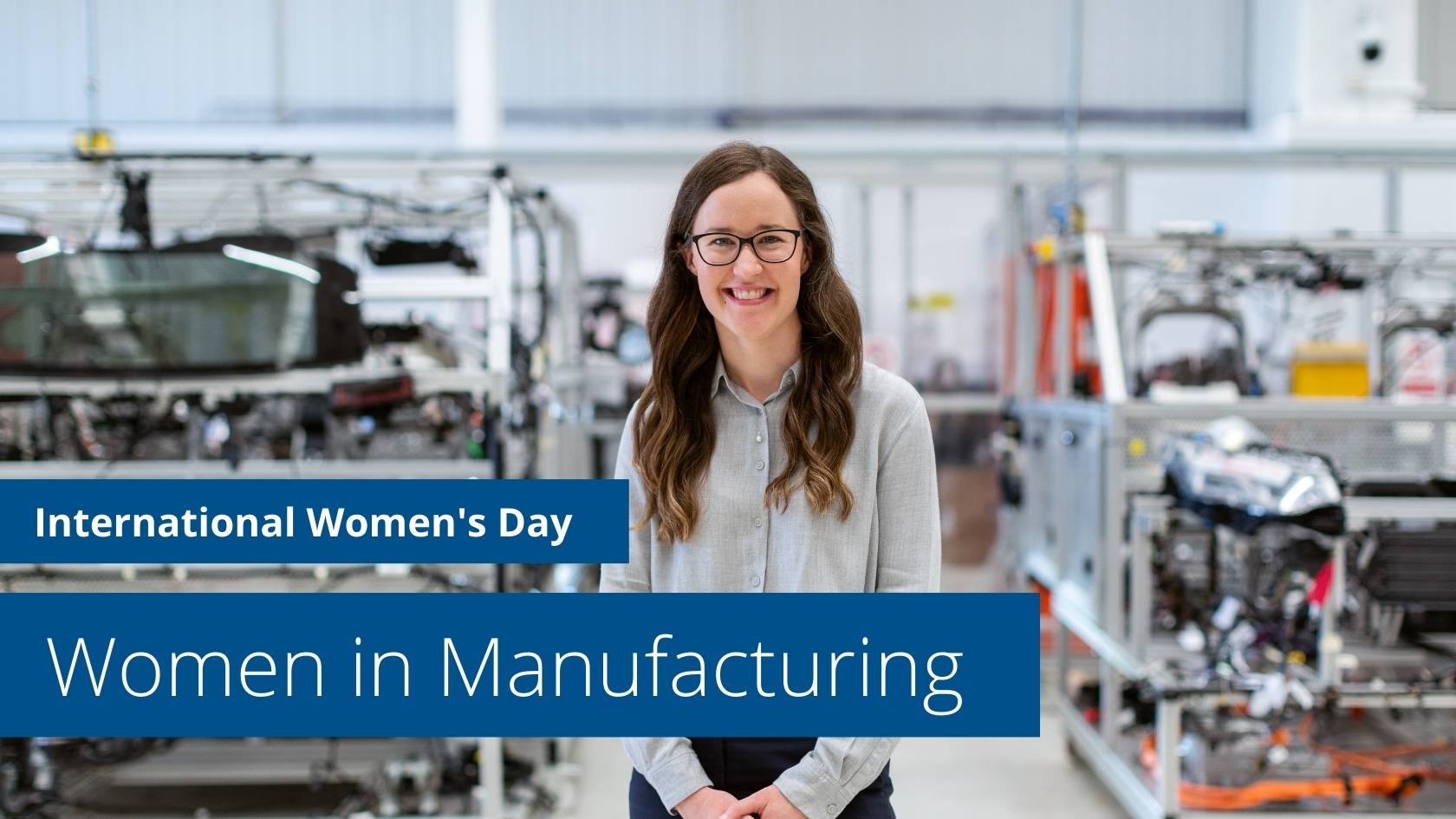
International Women’s Day 2023
The 8th of March, International Women’s Day, is a celebration counting more than 100 years. In 2023, despite the many and important achievements in terms of women’s rights, gender equality is yet to be achieved, and manufacturing is no exception. Below you can find important data about women in manufacturing, strategies to promote diversity in the workplace, and some relevant funding calls promoting female empowerment.
“Increasing diversity in manufacturing needs inspiring examples and encouragement. There are a lot of great female experts and leaders in manufacturing that serve as examples to newcomers. Our task is to make it visible that manufacturing and technical businesses are wonderful sectors for female and male to work in. And that diversity is a richness to any work community”
Riikka Virkkunen
VTT, EFFRA Board member & Co-Chair of the Made in Europe Partnership Board
Gender (in)equality in manufacturing
Women are significantly underrepresented in the manufacturing industry, representing only 30% of the workforce, a gap which widens as seniority levels increase; according to a 2020 study promoted by the World Economic Forum, only 15% of senior level staff and 9% of CEO positions are occupied by women. Different factors explain this asymmetry, starting with the low proportion of women graduating in science, technology, engineering and mathematics (STEM) disciplines. Secondly, the Women in Manufacturing white paper highlighted both the barriers to entry and lack of retention of women in the industry; factors such as the uneven sharing of domestic and care duties or the persistent wage gaps reported, together the prevalence of unconscious bias, constitute a glass ceiling preventing women from reaching the top levels of leadership.
These findings negatively impact the manufacturing industry in different ways. Studies have consistently shown how diverse and heterogenous teams are more effective and productive than homogeneous ones; according to the preliminary results of a study conducted in the Basque Country by the Women in Manufacturing Expert Group of the World Manufacturing Foundation, most egalitarian companies score better in competitiveness. Thus, the absence of women in manufacturing is not only a diversity issue but it also represents a strategic challenge that the industry increasingly acknowledges, especially considering the skills shortage faced by manufacturers. Thus, as a future-oriented community, we must strive to be as inclusive as possible and make manufacturing an attractive career path for women.
On the European level, there are transversal recommendations to expand and enhance equality data in European R&I, raise awareness and competencies in relation to inclusive GEPs and policies, and support a coherent Europe-wide approach to inclusive gender equality plans and policies together with stakeholders and marginalized groups. Other strategies to improve the situation include getting full support from board and management and embed diversity, equity and inclusion in the company culture and across divisions and functions, as well as setting clear, specific, and realistic data based KPIs and mandatory targets, and providing trainings to tackle unconscious bias. Additionally, programs building the talent pipeline at all levels and providing feedback, mentorship or sponsorship (institutional level promotion and opening networks) to female workers have proved to be effective.
Funding Opportunities in Gender Equality
EFFRA is deeply aware of the gender imbalance in manufacturing and is committed to increasing women’s representation in the industry. In light of the figures and recommendations above, we have gathered five calls specifically addressing gender equality and female leadership, three of which are already open and have March and April deadlines, and two upcoming calls for December 2023. You can find more details about these opportunities here.
Sources
Find more information in the following reports:
European Commission’s 2023 “Report on gender equality in the EU”
European Commission's DG R&I “Approaches to inclusive gender equality in research and innovation”
World Manufacturing Foundation “Back to the future – Manufacturing beyond COVID-19"
And in these two articles about “a manufactured gender imbalance” and “women in the European industrial sector”.

Comments (0)